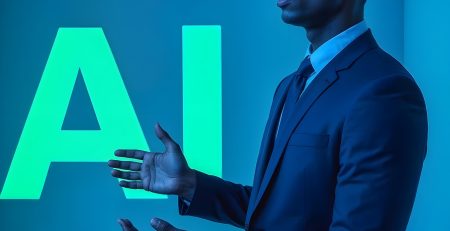Managing Next-Generation Talents: Redefining Workforce Strategies for a Digital Future
Managing Next-Generation Talents: Redefining Workforce Strategies for a Digital Future
By H.G&W Management Consulting
Introduction
As the global workforce continues to evolve, organizations are witnessing the rise of a new generation of talent — Gen Z and younger Millennials — whose values, work habits, and career expectations differ significantly from those of previous generations. Managing these next-generation talents is no longer about conventional HR policies or traditional leadership frameworks; it is about reimagining workplace culture, engagement, and growth in an era driven by digital fluency, flexibility, and purpose.
H.G&W explores how organizations can effectively attract, engage, and retain next-generation talents to drive innovation, inclusivity, and long-term competitiveness.
1. Understanding the Next-Generation Workforce
Next-generation talents are digital natives — individuals who have grown up with technology and are accustomed to instant access to information, remote collaboration, and social connectivity. According to Deloitte’s 2024 Global Gen Z and Millennial Survey, over 75% of Gen Zs prioritize flexibility, purpose, and inclusivity over traditional financial incentives when choosing employers.
Key characteristics include:
-
Digital Fluency: A deep comfort with technology, AI tools, and digital ecosystems.
-
Purpose-Driven Mindset: Desire to work for organizations that align with personal and societal values.
-
Continuous Learning: Preference for experiential learning and micro-skilling.
-
Collaborative Culture: Expectation of transparent communication and team-based work environments.
Understanding these drivers is essential for designing people strategies that resonate with this emerging generation.
2. Redefining Talent Attraction and Employer Branding
To attract next-generation talent, companies must evolve from transactional recruitment to experiential recruitment — where candidates experience the company’s culture and values early in the process.
-
Authentic Branding: Showcase purpose-driven missions, sustainability commitments, and diversity practices.
-
Digital Engagement: Use social media platforms, gamified applications, and AI-powered recruitment tools.
-
Community Integration: Partner with universities, innovation hubs, and online learning platforms to build talent pipelines.
Employers that project authenticity and social responsibility are more likely to become “employers of choice” for the next generation.
3. Creating a Culture of Learning and Agility
Next-generation employees thrive in learning-centric environments. Traditional annual training programs are no longer sufficient. Organizations should create continuous learning ecosystems powered by technology.
-
Microlearning Platforms: Offer bite-sized, on-demand learning experiences accessible from anywhere.
-
AI-Personalized Learning Paths: Use AI analytics to tailor development programs to individual career aspirations.
-
Mentorship and Reverse Mentorship: Encourage cross-generational knowledge sharing, where younger employees also mentor senior leaders in digital and cultural trends.
Learning agility becomes the currency of competitiveness in managing this new workforce.
4. The New Leadership Playbook
Leaders managing next-generation talents must adopt a coaching and empathetic leadership style. Command-and-control approaches are obsolete in an environment that values empowerment, collaboration, and psychological safety.
-
Empathy and Inclusion: Leaders must listen, understand, and co-create with employees.
-
Data-Driven People Management: Use analytics to understand employee sentiments, engagement levels, and performance drivers.
-
Empowered Autonomy: Allow flexibility and ownership of work, fostering innovation and accountability.
Leadership success in the next decade will hinge on emotional intelligence, adaptability, and authenticity.
5. Designing the Future Workplace Experience
The workplace of the future must blend technology, flexibility, and community. Hybrid work models, digital collaboration platforms, and immersive work experiences are redefining how next-generation talents engage with employers.
-
Flexible Work Policies: Hybrid or fully remote options with focus on outcomes, not hours.
-
Smart Collaboration Tools: Leverage AI and cloud technologies for seamless teamwork.
-
Employee Wellbeing: Integrate wellness programs, mental health resources, and purpose-driven engagement.
Organizations that invest in creating people-first experiences will retain the loyalty of next-generation employees in a fluid labor market.
6. Conclusion
Managing next-generation talent is not just an HR priority — it’s a strategic imperative. The organizations that will lead in the future are those that understand how to integrate technology, purpose, and empathy into their people strategy. By embracing continuous learning, inclusive leadership, and meaningful engagement, companies can unlock the full potential of the workforce shaping tomorrow’s economy.
H.G&W partners with global organizations to design talent strategies that empower next-generation leaders, foster innovation, and future-proof human capital for the digital era.










Leave a Reply